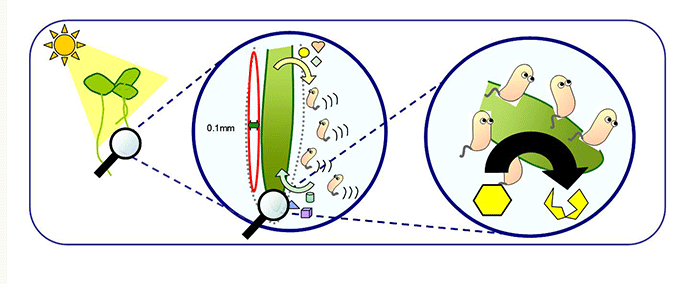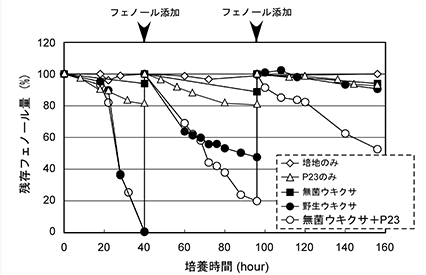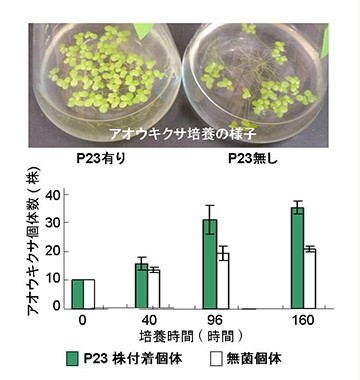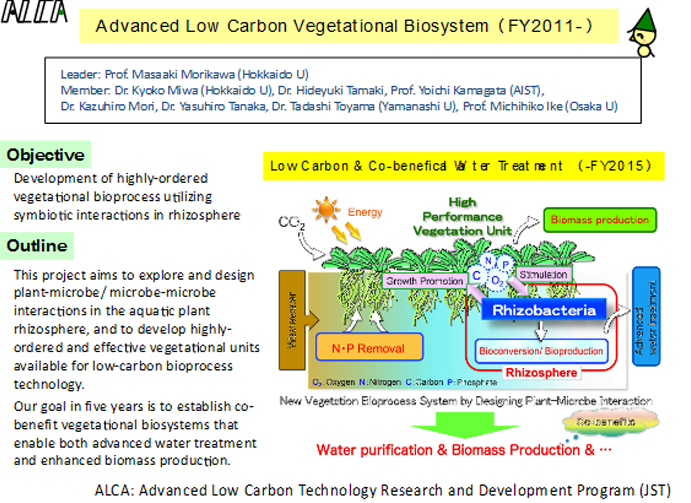Plant-Microbe symbiosis
Development of high-ordered vegetational bioprocess utilizing symbiotic interactions in rhizosphere (ALCA 2011-2016)
Phytoremediation is one of the bioremediation which is defined as the use of green plants to remove pollutants from the environment or to render them harmless. Phytoremediation can be categorized by phytoextraction, phytodegradation, rhizofiltration, phytostabilization, and phytovolatilization. Phytodegradation of organic pollutants is mostly owed to the microbial degradation activity in the rhizosphere, the area in which plant roots-microbial close interaction occurs. Then, phytodegradation is also recognized as rhizoremediation. Plant roots support the growth and metabolic activities of a wide variety of microorganisms that may also have a profound effect on the growth and/or health of plants.
The advantage of phytodegradation is that the rhizobacteria, bacteria in the rhizosphere, can stably degrade the pollutants while using nutrients from the plant root exudates and oxygen exchange in the root system(Fig. 1, 2).
Phenol-degrading bacteria were isolated from the surface of duckweed, Lemna aoukikusa, using an enrichment culture method. One of the isolates, P23, exhibited an excellent ability to degrade phenol and formed robust biofilms on a solid surface under laboratory conditions. P23 rapidly colonized on the surface of sterilized duckweed and enhanced its growth. A long-term performance test using L. aoukikusa/ P23 association showed that continuous removal of phenol could be attributed to the beneficial symbiotic interaction between duckweed and its surface bacterium(Fig. 3, 4[92,96,100]). This close association enabled us to recover bacteria with duckweeds. Rational reconstruction of multispecies microbial community structure, including pollutant degrader and plant growth promoter, on duckweed surfaces might lead to an innovative phytoremediation technology.
Fig. 2
Effective Aquatic Biomass Production Utilizing Mutualistic Microorganisms (ALCA 2016-2020 Enabling Technology Stage)
Development of the Duckweed Holobiont Resource Values towards Thailand BCG Economy (SATREPS 2020-)
https://www.jst.go.jp/global/english/kadai/r0204_thailand.html
https://www.jst.go.jp/global/english/public/shiryo/satreps_brochure_e_web.pdf?202202





